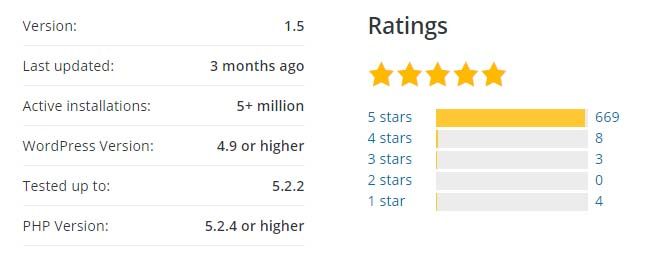
If you are a WordPress user, I am sure you noticed that the future of WordPress is changing. The largest change is the default content editor is now a block editor (aka Gutenberg). As controversial as it is, it’s here to stay! But, is this the only change that you will see, or will there be more on the way? As things change, what features will be added, removed, or changed? How about themes, will they still work as they do today?
The Future of WordPress and Themes – I’m Not the Only One Seeing This
Apparently, I’m not the only one who sees the end of themes as we know it. WPTavern recently posted an article…Gutenberg and the Future of WordPress themes, written by Justin Tadlock about this very subject. He also went on to reference another article titled The End of WordPress Themes is in Sight that was written by Ben Gillbanks. In Ben’s article, he said, “Themes as we know them will no longer be made.” The hard truth is that it does not look good for themes, down-the-road.
I will share a few thoughts on the future of WordPress and the possible changes you will see.
History and The Future of WordPress
A quick history of WordPress!
WordPress was originally created to be a blogging platform back in 2003. In other words, the WordPress content management system (CMS) for blog websites.
However, as time went on, themes began to develop to be more than just themes. They became structural and began to implement page building capabilities with the help of popular builders like WPBakery, Elementor, Beaver Builder, and Divi, to name a few.
How Making Websites with WordPress has Evolved
The advancement and integration of drag-and-drop capabilities started to become a very enticing tool for many end-users. This can be attributed to the fact you don’t have to worry about HTML or even CSS coding.
The beneficial appearance is when you can use page builders to achieve a variety of layouts for your WordPress site. Page builders will take over your content editor, which allows creative page layouts to emerge. A good example is when you go to a theme marketplace like Theme Forest and see the amazing demos of a flood of page builder dependent themes. Serious eye-candy! Keep in mind though, there is a hidden price to pay when using them (more on this in a future article).
The Future of WordPress and the Block Editor
Yes, WordPress is changing and Gutenberg (block editor) is here to stay! WordPress is working in phases to convert what you have always been familiar with, into something completely different. Planned projects for 2019 are continuously being added, but here are a few outlined from Gutenberg Times:
- Creating a block for navigation menus.
- Porting all existing widgets to blocks.
- Upgrading the widgets-editing areas in
wp-admin/widgets.phpand the Customizer to support blocks. - Providing a way for themes to visually register content areas, and exposing that in Gutenberg.
Although WordPress is changing, so will themes. The plan is for WordPress to handle the page structure using blocks where themes would be limited to just styles (CSS). As someone who has created themes for WordPress for what seems to be around 9 years, I’ve seen a lot of changes. As a theme developer, I have to adapt to each change, so it makes sense to adapt once again.
But, What About Gutenberg and the Controversies?
When Gutenberg was being introduced as a plugin (which currently still is), there were [is] a lot of controversies. There are three types of WordPress users as it relates to Gutenberg:
- One group includes people who love everything about Gutenberg.
- There are people who think Gutenberg has potential but has a lot of issues to work out—and to have the development team listen to website and blog authors.
- Then there are people who absolutely hate Gutenberg and have installed the Classic Editor plugin to revert back to what they have used all the time.
I will admit that I am not a fan of it because of many reasons, but this article isn’t about me. You can always ask in the comments though…
Let’s Talk About Themes
I can discuss more WordPress, but let me get back on topic as it relates to the future of WordPress themes.
The reason I brought up the discussion of changes that are happening and will happen, this has a direct influence on where themes are heading.
With the implementation of the block editor, this is going to bring major changes to how themes are made. This will affect how theme creators are going to have to adapt. This includes Rough Pixels, other theme sites, and even marketplaces like Theme Forest.
What Things You Should Expect to Change?
In the near future, expect to see themes change in ways that I will outline below:
- Theme design will be very basic–almost making the minimalist style more minimal.
- Themes will have “block areas” which will be predefined areas within a template. In the block editor, you will first select a predefined template that lets you drop blocks into them. Each block area will be displayed where you can drop a block into it. You may even find temporary blocks to give you a first-hand look before you begin building your page.
- Headers and Footers will now be added with blocks; no more themes with header and footer template files.
- Themes will primarily be stylesheet based concepts; almost a blank canvas where your block areas and blocks will use CSS to design and style your website.
- Fully loaded, multipurpose themes may come to an end. Or, at least they will start to lose compatibility as time goes on.
- Third-party widgets will no longer be usable at some point. Widgets, in general, will become blocks. In fact, WordPress is already working on the conversion of default widgets to become blocks. Themes that offer built-in widgets will need to convert to blocks as well.
- Themes of today may become obsolete if they cannot adapt to the changes WordPress is doing.
It’s scary to realize your theme will no longer be compatible, but the key factor is that theme developers MUST adapt.
Should You Be Worried Now?
For many, this could be seen as a bleak outlook for the future of WordPress themes, but with the direction of WordPress, you have no choice but to ride the wave and accept where it takes you.
But should you be worried now? The short answer to that question is, no. However, we cannot ignore the fact that WordPress is changing and will no longer be what it was originally created for–to be a blogging platform.
You have a few options, of course.
- Adapt as things change, but don’t leave it to the last moment.
- Stay up-to-date with WordPress news so that you know what and when things will happen, change, etc.
- Keep notes of what plugins, widgets, and what theme you use. Make sure each one is kept up-to-date, but also be aware of what your theme has built into it. The reason is so that you know what might become incompatible as WordPress changes.
Basically, you are OK for now, but be aware WordPress is changing and everything you know about it now will be quite different later.
What About Themes from Rough Pixels?
One of the advantages I have with themes from Rough Pixels, is that I can easily adapt along the way.
However, one of my objectives with future theme development is to maintain a balance between features and adaptive design while keeping up with the changes in WordPress. I will keep things as simple as possible while giving you themes with scalability, compatibility, and lots of features.
The Future of WordPress and the Classic Editor Plugin
I mentioned earlier about the controversy of the block editor and how so many people were not happy (putting it mildly). Despite the sheer number of negative reviews and blog articles about the Gutenberg editor, WordPress ignored what people had to say. At the time of writing this article, I decided to check out the reviews for the Gutenberg plugin at WordPress.org, but remember, this is mostly for the plugin version. I also took the liberty of checking out the review for the Classic Editor plugin too!
Gutenberg Editor Plugin

Classic Editor Plugin

However, I will give a tip of the hat to the decision of allowing people to download the Classic Editor plugin if they did not want to use the block editor. Albeit, with a caveat…
…So, don’t get too comfortable with the classic editor plugin, as it won’t be around forever. In fact, it was mentioned on the WordPress website that this will no longer be supported past 2021 in a post titled “Classic Editor Plugin Support Window“.
The Classic Editor plugin will be officially supported until December 31, 2021.
Gary Pendergast
This means that whether you like it or not, there will be a point in time that the block editor will be your only choice…or is it?
Enter ClassicPress
Because of the backlash and dislike for the Gutenberg block editor, not to mention the direction WordPress is going, a new fork of WordPress was born last year, called “ClassicPress“. I wrote an article about an “Alternative to WordPress” called ClassicPress.
ClassicPress was created to give people an alternative to WordPress with the promise that you will never see Gutenberg. For the millions of WordPress users that do not like where WordPress is going, you now have the option to switch to ClassicPress. No Gutenberg, no block editor, and for the most part, you will still be able to use your themes and plugins. The claim right now is that all themes and plugins that support up to WordPress version 4.9.x are compatible.
I should mention that themes at Rough Pixels are compatible with both the Gutenberg block editor as well as ClassicPress. In fact, I will be designing more themes that are built with more emphasis on ClassicPress.
But to reiterate, ClassicPress will keep the classic editor going and you will never see anything associated with Gutenberg or any form of a block editor.
ClassicPress Themes and Plugins
With the direction and major changes that WordPress is implementing, themes are definitely going to change. However, themes will continue to work on ClassicPress. You may even start to see ClassicPress theme sites/shops that are 100% dedicated to only creating themes for it.
Plugins will be in a similar state, although the real unknown is how many developers of the popular plugins for WordPress will include ClassicPress in their portfolio?